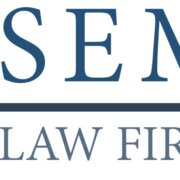Best Corporate & Commercial Lawyers in Netherlands
Share your needs with us, get contacted by law firms.
Free. Takes 2 min.
Or refine your search by selecting a city:
List of the best lawyers in Netherlands
Netherlands Corporate & Commercial Legal Articles
Browse our 1 legal article about Corporate & Commercial in Netherlands written by expert lawyers.
- Structuring a Dutch Holding Company in the Netherlands
- The Dutch Participation Exemption eliminates corporate income tax on dividends and capital gains derived from qualifying subsidiaries. The Netherlands offers one of the world's most extensive networks of Bilateral Investment Treaties (BITs), providing legal protection against foreign government interference. Maintaining "substance" is critical; holding companies must demonstrate a physical and... Read more →
About Corporate & Commercial Law in Netherlands
Corporate and commercial law in the Netherlands refers to the broad spectrum of regulations, legal principles, and procedures that oversee how businesses are created, managed, merged, restructured, and wound up. Dutch law is renowned for being business-friendly, providing a supportive legal framework for both domestic and international enterprises. Corporate law specifically addresses how companies are structured, governed, and dissolved. Commercial law concerns itself more with everyday business operations, such as contracts, trade, sales, and distribution. The Netherlands is a popular location for headquarters of international companies, due to its transparent regulatory environment and robust legal system.
Why You May Need a Lawyer
Navigating corporate and commercial law in the Netherlands can be complex, particularly for those unfamiliar with local rules and business culture. You may require legal assistance for situations such as:
- Incorporating a new company or choosing the right corporate structure
- Drafting, reviewing, or negotiating commercial contracts and agreements
- Handling mergers, acquisitions, or other significant transactions
- Complying with Dutch and EU business regulations
- Resolving shareholder disputes or issues concerning company governance
- Managing employment law matters within a corporate context
- Protecting intellectual property or negotiating licensing deals
- Dealing with insolvency, restructuring, or winding up a company
- Cross-border transactions and international business operations
- Litigation or alternative dispute resolution regarding commercial matters
Local Laws Overview
The Netherlands adheres to both Dutch law and relevant European Union law. Key legal aspects for corporate and commercial activity include:
- Legal Entity Forms: The most common are the private limited company (BV) and the public limited company (NV). Each has different requirements and governance rules.
- Company Registration: Registration at the Dutch Chamber of Commerce is mandatory for most businesses. The Dutch Commercial Register ensures transparency and public access to company data.
- Corporate Governance: The Dutch Civil Code provides strict rules about management, supervisory boards, and shareholder rights. Listed companies must also follow the Dutch Corporate Governance Code.
- Contract Law: Dutch contract law is flexible but demands clarity and full disclosure. Most commercial agreements are legally binding when basic elements are present (offer, acceptance, consideration, intent).
- Employment Law: Employee rights in the Netherlands are robust. Corporate actions like restructuring or mergers must observe labor protections and consultation obligations.
- Taxation: The Netherlands has favorable tax treaties and an attractive corporate tax regime, though strict anti-abuse measures apply.
- Dispute Resolution: The Dutch courts are generally reliable, but private arbitration and mediation are growing in popularity for commercial disputes.
- Compliance and Anti-corruption: Companies must comply with the Dutch Anti-Money Laundering Act, GDPR for data privacy, and various transparency regulations.
Frequently Asked Questions
What is the most common form of business entity in the Netherlands?
The private limited company or BV (Besloten Vennootschap) is the most popular business form due to its limited liability, flexible structure, and relatively easy incorporation process.
Can foreigners own a Dutch company?
Yes, foreigners can fully own Dutch companies. There are no nationality or residency restrictions for shareholders or directors, although having a registered Dutch address is required.
How long does it take to set up a company in the Netherlands?
Incorporation can typically be completed within one to two weeks, provided all documentation is in order and due diligence checks are satisfied.
Are company directors personally liable for company debts?
Dutch law ensures that properly acting directors of a BV or NV are generally not personally liable for company debts. However, liability may arise in cases of mismanagement or fraud.
What are the essentials for a valid commercial contract in the Netherlands?
A contract generally requires an offer, acceptance, capacity of parties, legal intent, and (in most cases) consideration. Certain contracts must be in writing to be enforceable.
Are shareholder agreements mandatory?
While not legally required, it is strongly advisable to have a shareholder agreement to govern rights, obligations, transfers, and dispute resolution among shareholders.
What should I consider regarding employment law when starting a business?
Dutch employment law provides significant protections for employees including strict rules on dismissal, mandatory benefits, and collective labor agreements. Employers must also observe consultation obligations with works councils in larger companies.
What are the main annual compliance requirements for Dutch companies?
All companies must file annual accounts with the Dutch Chamber of Commerce, hold annual shareholder meetings, maintain accurate records, and fulfill tax filing obligations.
How are commercial disputes typically resolved in the Netherlands?
Most disputes are resolved through negotiation, but Dutch courts are available for litigation. Arbitration and mediation are also popular, especially in international commercial matters.
Can I do business in English or must all documents be in Dutch?
Many commercial documents and contracts can be in English, especially in international contexts. However, certain official filings and company records may need to be in Dutch for legal validity.
Additional Resources
If you are seeking more information or legal assistance in corporate and commercial matters in the Netherlands, consider the following resources:
- Dutch Chamber of Commerce (Kamer van Koophandel or KvK) for company registration and business advice
- Netherlands Enterprise Agency (RVO) for guidance on starting and growing a business
- Ministry of Economic Affairs and Climate Policy for regulatory and policy information
- Netherlands Bar Association (Nederlandse Orde van Advocaten) for finding qualified lawyers
- Dutch Business Association (VNO-NCW) for business networking and legal updates
- Corporate Governance Code Monitoring Committee for compliance with governance standards
- International Chamber of Commerce Netherlands for cross-border commercial activities
Next Steps
If you need legal assistance with corporate or commercial matters in the Netherlands, consider the following steps:
- Clearly define your legal issue or business goal
- Gather all relevant documents and information about your business or transaction
- Consult the Dutch Chamber of Commerce for initial advice and to confirm registration requirements
- Contact a specialized corporate or commercial lawyer, preferably one with experience in your industry or business type
- Request an initial consultation to discuss your needs, potential strategies, and estimated costs
- Stay informed about your legal obligations and compliance requirements to avoid future risks
Seeking early legal advice can help you avoid costly mistakes, protect your business interests, and ensure smooth operations as you navigate the dynamic Dutch business environment.
Lawzana helps you find the best lawyers and law firms in Netherlands through a curated and pre-screened list of qualified legal professionals. Our platform offers rankings and detailed profiles of attorneys and law firms, allowing you to compare based on practice areas, including Corporate & Commercial, experience, and client feedback.
Each profile includes a description of the firm's areas of practice, client reviews, team members and partners, year of establishment, spoken languages, office locations, contact information, social media presence, and any published articles or resources. Most firms on our platform speak English and are experienced in both local and international legal matters.
Get a quote from top-rated law firms in Netherlands — quickly, securely, and without unnecessary hassle.
Disclaimer:
The information provided on this page is for general informational purposes only and does not constitute legal advice. While we strive to ensure the accuracy and relevance of the content, legal information may change over time, and interpretations of the law can vary. You should always consult with a qualified legal professional for advice specific to your situation.
We disclaim all liability for actions taken or not taken based on the content of this page. If you believe any information is incorrect or outdated, please contact us, and we will review and update it where appropriate.
Browse corporate & commercial law firms by service in Netherlands
Netherlands Attorneys in related practice areas.
Browse corporate & commercial law firms by city in Netherlands
Refine your search by selecting a city.
















